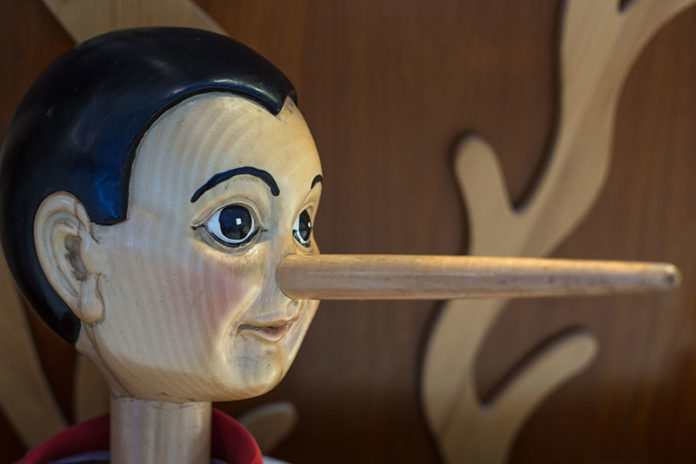Democratic House Speaker Nancy Pelosi insists she does not “hate” President Donald Trump. Responding to a reporter’s question after she directed the Democratic House Committee chairmen to draft articles of impeachment, Pelosi said: “As a Catholic, I resent your using the word ‘hate’ in a sentence that addresses me. I don’t hate anyone. I was raised in a way that is a heart full of love and always pray for the president. And I still pray for the president. I pray for the president all the time. So don’t mess with me when it comes to words like that.”
Yet, in December 1998, during the House debate on the impeachment of President Bill Clinton, Pelosi attributed the Republicans’ motive to their alleged “hatred” of Clinton. On the floor of the House, Pelosi said: “Today the Republican majority is not judging the president with fairness but impeaching him with a vengeance. In the investigation of the president, fundamental principles which Americans hold dear — privacy, fairness, checks and balances — have been seriously violated, and why? Because we are here today because the Republicans in the House are paralyzed with hatred of President Clinton, and until the Republicans free themselves of this hatred, our country will suffer.”
As recently as last March, Pelosi argued that, without significant buy-in from Republicans, she considered a Trump impeachment a non-starter. Pelosi said: “Impeachment is so divisive to the country that unless there’s something so compelling and overwhelming and bipartisan, I don’t think we should go down that path, because it divides the country. And he’s just not worth it.”
In 2017, the now House Judiciary Chairman Jerry Nadler, D-N.Y., then in competition for the chairmanship against fellow Democrat Zoe Lofgren, D-Calif., shared Pelosi’s position: “There’s not much point in impeaching a president and having him acquitted in the Senate as happened with Clinton. … If you are actually going to remove a president from office, you are in effect nullifying the last election. Certainly the people who voted for him will think you’re nullifying the election. It’s OK to do that. It may be necessary to do that — as long as you have persuaded a sufficient fraction of the president’s former supporters, the people who voted for him, that you have to, that it’s necessary.” And, at the time, Lofgren agreed. “By the time the vote was taken in the Judiciary Committee to impeach Richard Nixon, the country understood it and they agreed with it,” said Lofgren. “This should be a healing effort, not a divisive effort, if it happens.”
Trump defenders call his impeachment the “most partisan in history.” It is. The House vote to start an impeachment inquiry into President Richard Nixon was 410-4. In the case of President Bill Clinton, 31 House Democrats joined House Republicans in voting for a formal impeachment inquiry, and eventually five Democrats voted for at least one article of impeachment. Not one House Republican joined the House Democrats in voting for an impeachment inquiry of Trump, and none voted for either of the two articles of impeachment. Not one.
At the time of Clinton’s impeachment, about two-thirds of Republican voters wanted Clinton convicted and ejected from office. Currently, 89% of Democrats want Trump convicted and ejected from office.
Again, as a percentage of their own parties, fewer Republicans wanted the expulsion of the “hated” Bill Clinton from office than Democrats who today want Trump expelled. Again, 31 House Democrats voted for Clinton’s impeachment inquiry, with five House Democrats voting for an article of impeachment. Today, 89% of Democrats want Trump out, even though not one Republican in the house voted for the Trump impeachment inquiry.
How weak is the Democrats’ case for impeachment? After the first day of Trump’s defense team that argued against conviction, Jeffrey Toobin, CNN’s chief legal analyst, said: “I just think the Republicans are winning here. The president is winning here. And as long as they don’t completely fall on their faces — which, they’re all competent lawyers; they’re not going to do that — I think that’s fine for them.” And as to obstruction of Congress, the second article of impeachment, CNN legal analyst Ross Garber said: “Presidents going back to Washington have asserted privileges and immunities and objections.
You know, President Obama’s attorney general was cited for criminal and civil contempt of Congress. I think it would be very dangerous to say that that is now a basis for impeachment.”
Rep. Maxine Waters, D-Calif., who demanded Trump’s impeachment well before the whistleblower filed his or her complaint, said: “Impeachment is whatever Congress says it is. There is no law.” She’s right. Her statement shows that impeachment is really a political process rather than a legal one. However one feels about the merits of Trump’s impeachment, it fails the bipartisan standard that Democrats like Pelosi and Nadler once demanded.




























